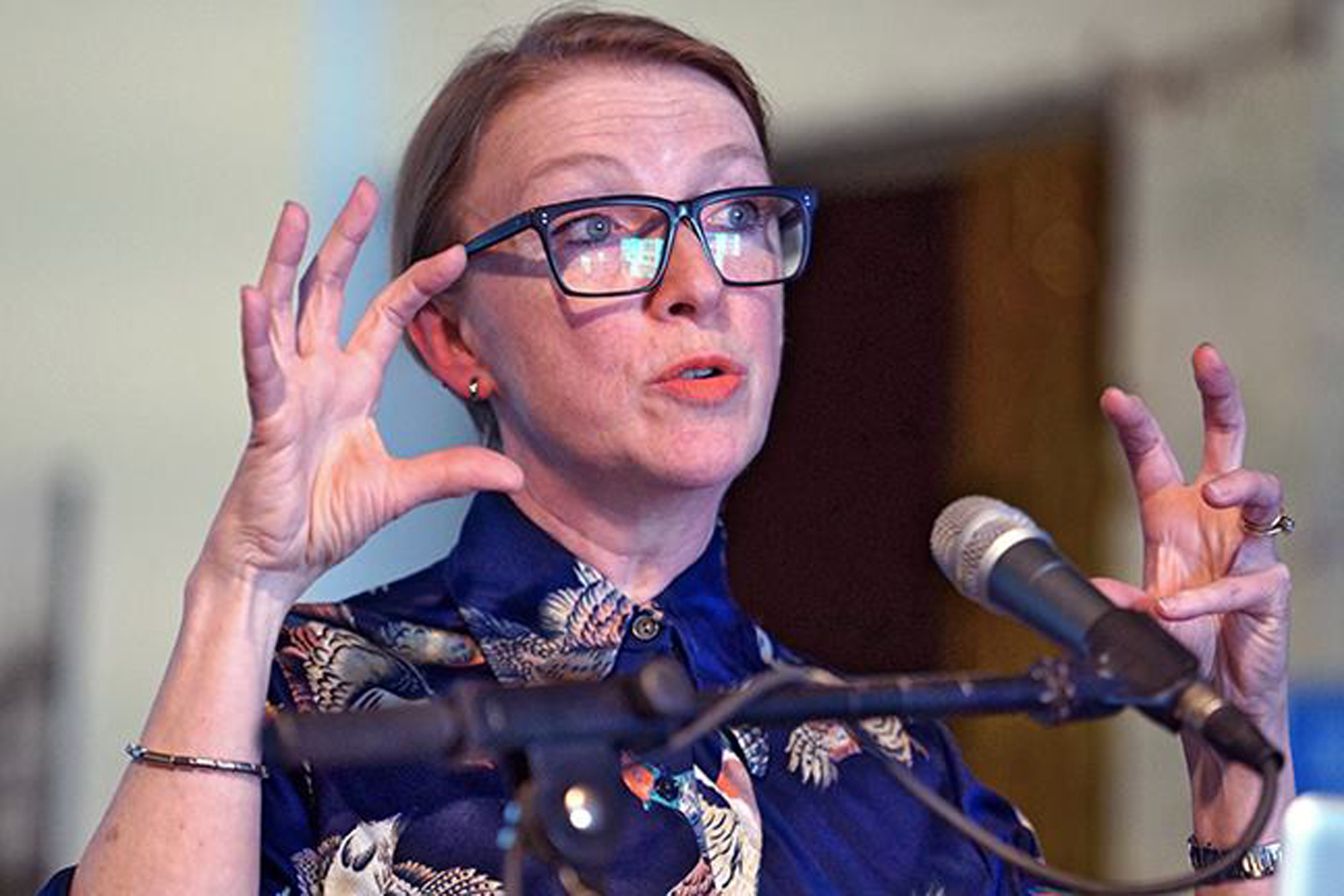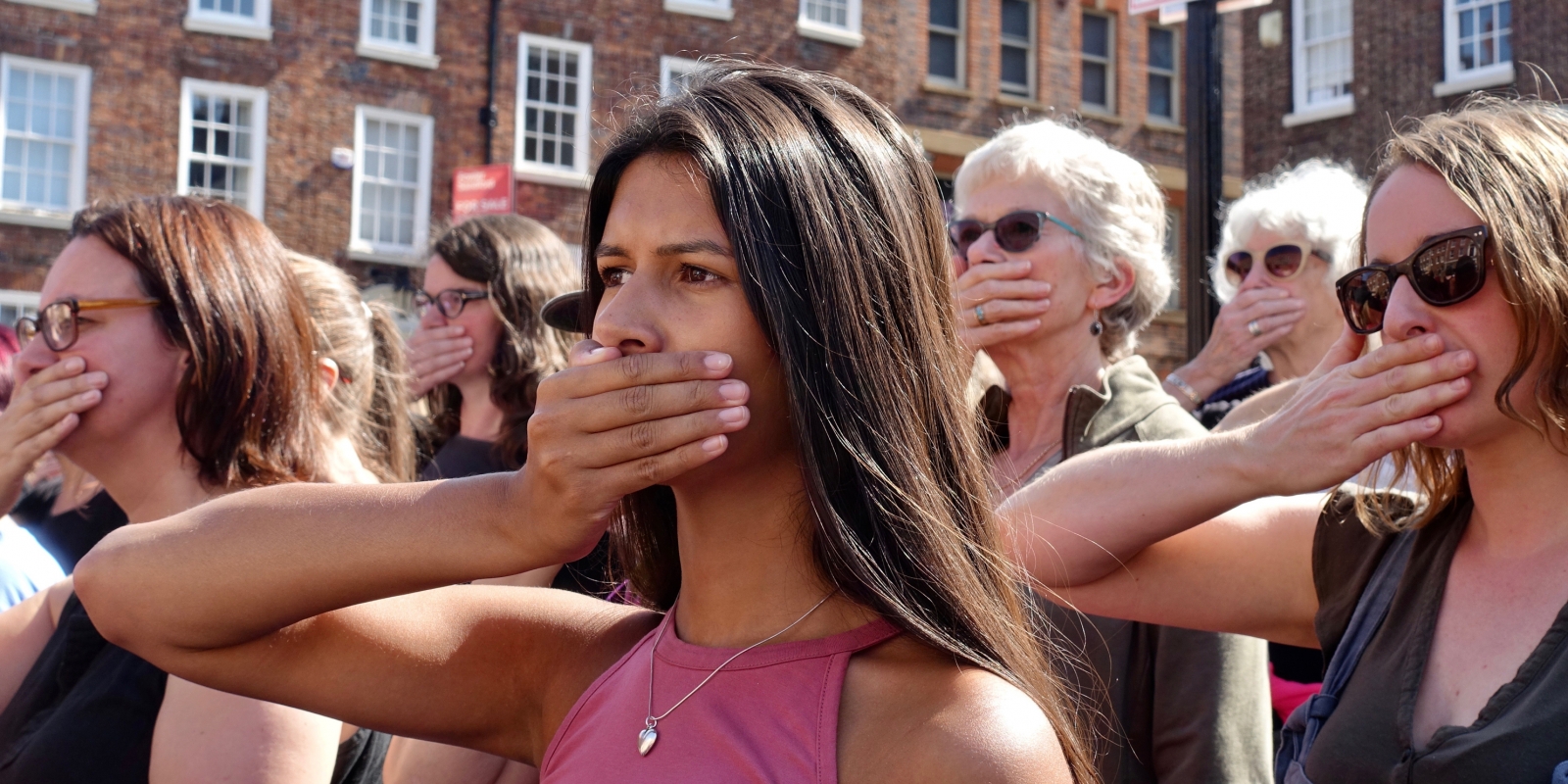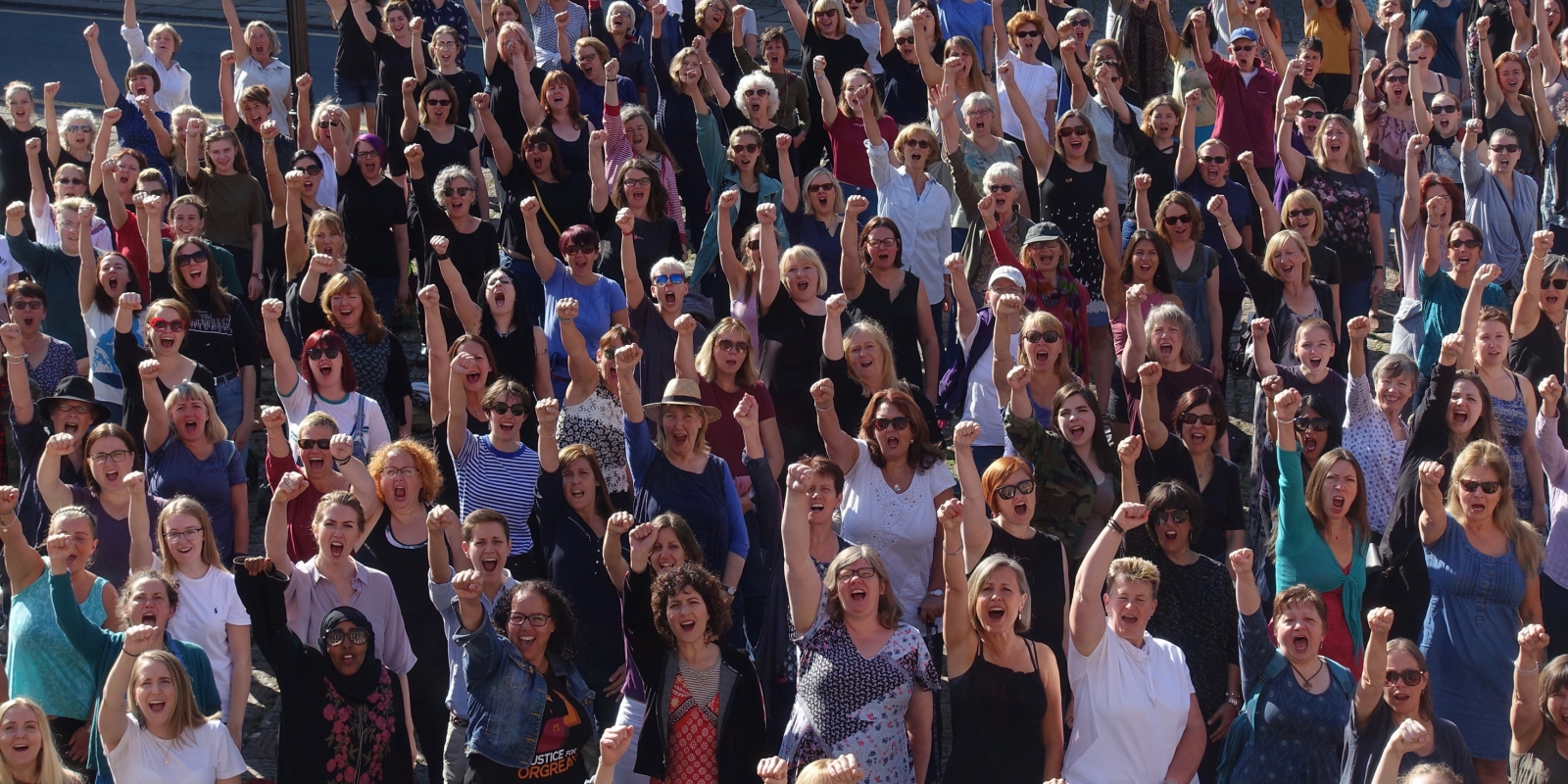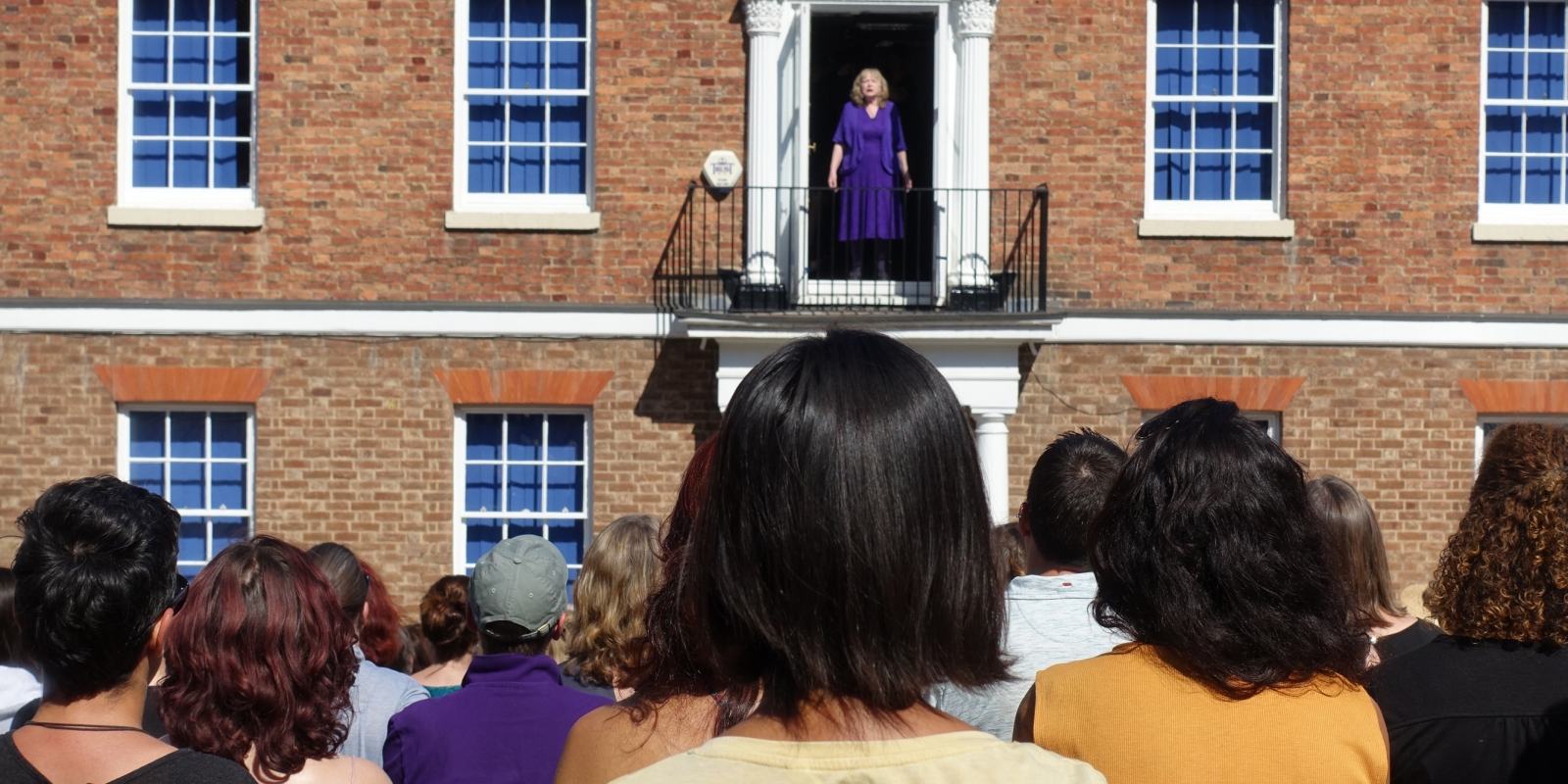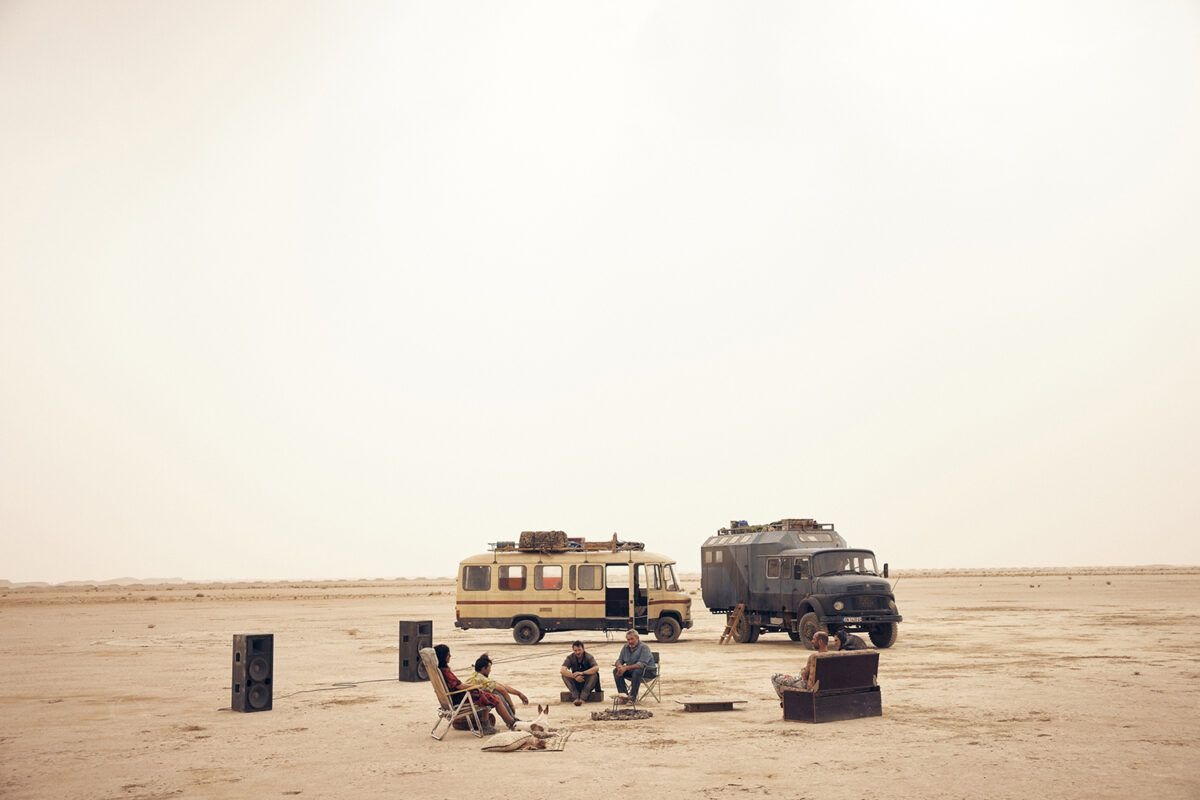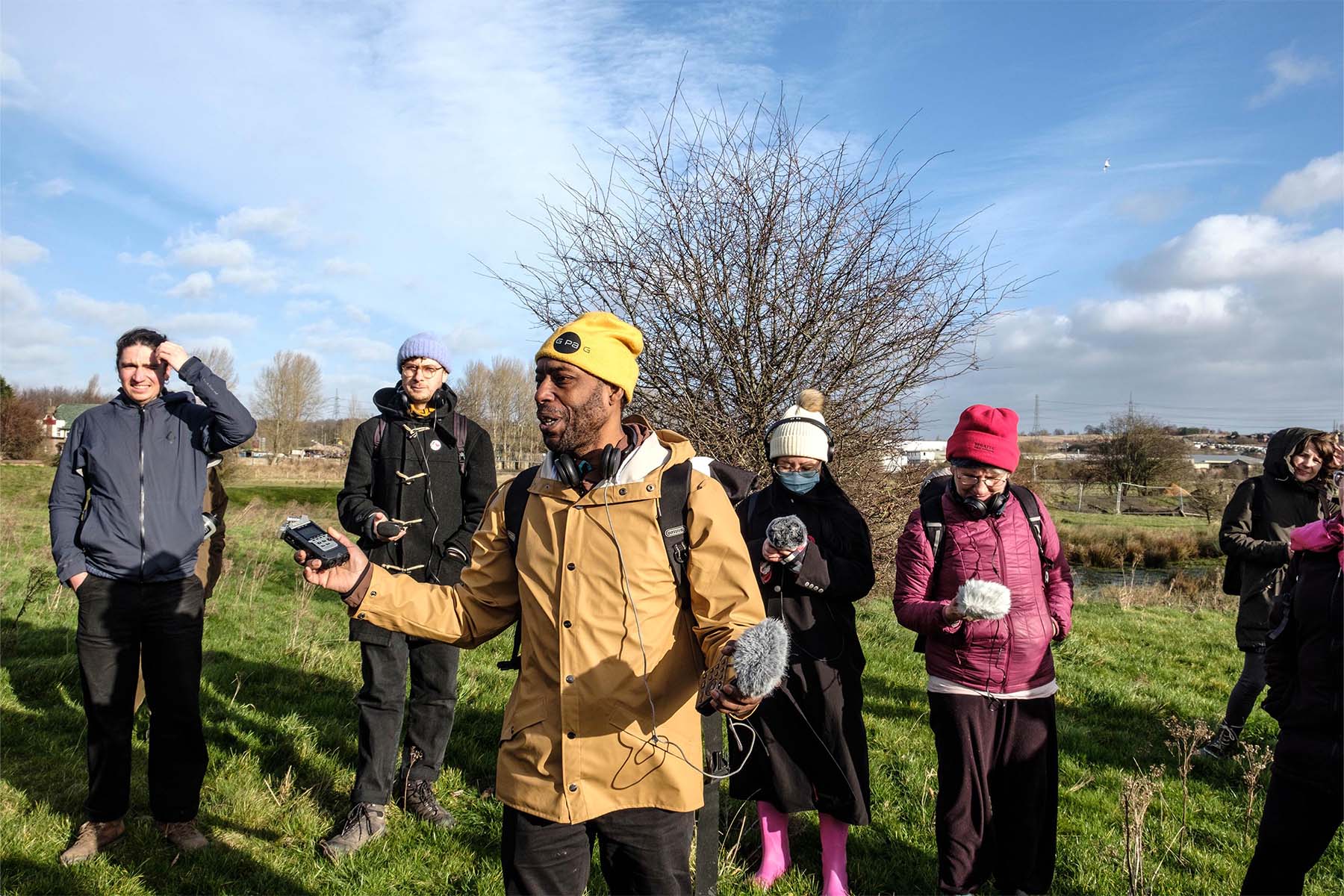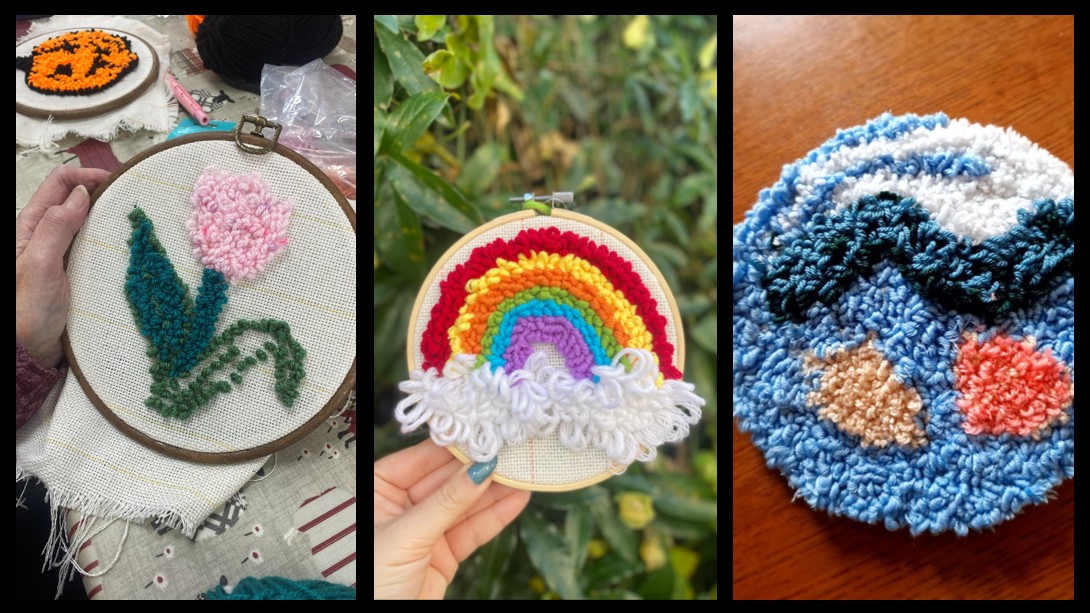In 1851 the country's first group dedicated to women's votes gathered in a hotel right here in Sheffield. This was a good forty years before the suffrage movement really took off and here were these pioneering women in Sheffield, sending a petition to the Lords and penning a manifesto that boldly called on their sisters to "shake off our apathy and raise our voices for right and liberty". You'd think it would be a pretty significant point on the city's timeline, and yet it's barely remembered almost 170 years on. Artist Chloë Brown wants to address that, and has taken the event – and its relative obscurity – as the starting point for her new work, A Soft Rebellion in Paradise.
With this short film Chloë questions the burying of women's narratives and responds to Sheffield's generally proud history of political activism. It's part of Chloë's ongoing series of Soft Rebellions, in which she stages and films subtly subversive acts, playing with ideas around power, hierarchies and norms of behaviour.
For each Rebellion, Chloë investigates historically significant spaces in post-industrial cities, aiming to challenge preconceptions and amplify voices that have traditionally been silenced. She's turned a disused factory's boardroom into a ballroom in Stoke-on-Trent, invited radical women to a dinner party in the historically exclusively male environment of a masonic lodge in Detroit, and, for this most recent piece, brought together 200 women in Sheffield's Paradise Square in a nod to its history as a site of protest.
Here Chloë shares what inspires her, ahead of the premiere of A Soft Rebellion in Paradise, in Paradise Square itself, at Doc/Fest this June.
How would you describe your work?
I come from a sculptural and installation background but I've ended up making films, most recently asking questions around post-industrial cities. My current body of work, Soft Rebellions, is a series of actions and events that involve dancing, eating, talking and applauding in places where it's considered inappropriate to do so.
In the past four years I've made a lot of work in Detroit, the epitome of the post-industrial city. I looked at what activists were doing in the city, particularly black women as the city is 80% people of colour and women's narratives are frequently buried. I held a dinner party called Detroit Dinner Service for twelve women from the city, with food grown and cooked by women, in the Masonic Temple where Henry Ford used to be a brother. I wanted to cock a snook at this secret, male-only environment, with the feeling like we were doing something we shouldn't be. While I was there, Martha Reeves (who was one of the dinner guests) told me about the 'Wigan clap' – when she played Wigan Casino in the 60s and 70s they used to clap slowly after each song and then build up until they reached crescendo, and when they couldn't clap any faster they'd all stop at the same time. So I asked groups of activists in Detroit to do the clap and I've filmed them applauding – I've done it Sheffield as well to make a piece called The Clapping Piece. I always think it'd be great to make a sort of informal twinning, bringing the two cities together somehow with this work.
How do you choose the themes you work with?
The post-industrial theme came out of the opportunity to work with people from art schools across northern Europe on a project called Topographies of the Obsolete, which started in Stoke-on-Trent at the Spode factory. It had shut down a few years before and was like a ghost ship, everything was just left. Northern soul nights were and still are a huge thing in the city, so I filmed two northern soul dancers dancing in the empty boardroom (Dancing in the Boardroom (Turnin' My Heartbeat Up)). It was a way of putting life back into the room and being somehow a bit disrespectful of this space that felt very hierarchical, much fancier than where the factory workers would have been. The film questions issues such as the class system, labour and norms of behaviour. I'm trying to reject that ruin porn view of a post-industrial city in favour of work that is celebratory, uplifting and hopefully empowering.
What are you working on at the moment?
The film that I'm working on that the moment comes out of the Soft Rebellion work. I wanted to make a film that centred on Sheffield's proud history of activism and particularly on Paradise Square behind the Cathedral, because that's where a lot of people gathered to protest in the 1800s and into the 1900s. I also got interested to discover that Sheffield was the city where the first official campaign group for women's suffrage was founded in 1851. So I wanted to do something about women, in the square, that'd be really uplifting. I gathered around 200 women and filmed them performing a number of soft rebellions – being silent, yelling, doing the Wigan clap – all centred on a three-part poem by Geraldine Monk that in part becomes more like a spell. A musician called Die Hexen (which means "the witches" in German) then made this incredibly evocative soundscape that sits underneath everything.
I'm also about to release an album of the toasts that the twelve women at the Detroit Dinner Service made, which local graphic design company Dust are designing.
What's your workspace like?
I've always had a studio in Sheffield since I moved here in 1988; first at the long-gone Blast Lane Studios, then at Yorkshire Artspace and now at my home. My husband is an artist as well and we live in half of the house and in the other half we've got our studios.
What, who or where should be better known in Sheffield?
I do think we hide things under a bushel here, I don't know whether out of humbleness or carelessness. Certain things about Sheffield's political history should be celebrated more – there we were in the 1850s, around 50 years before the Pankhursts, with women from the Chartist and anti-slavery movements coming together to campaign for suffrage.
Also, the poet Geraldine Monk – she's ace!
I love the independent music venue and recording studio Delicious Clam near the old Castle Market. As a lecturer at the art school I come into contact with a lot of exceptionally creative types, and some of our fine art graduates stay on in Sheffield to develop strong careers as artists and often also in the music scene. It's great that the DIY scene is underground but perhaps it's a bit too underground – the city really is packed full of creative people and they could be celebrated a bit more.
What would you change about the city?
I love Sheffield and I'm proud to have lived here most of my life, but there are a number of things that I think we perhaps don’t value enough. Now that the steel and coal industries no longer have a real impact on the city, I wonder what would happen if the council took the creative industries a lot more seriously and saw them as one of our main industries?
I also feel we should value our architectural history more. I love to see industrial buildings re-imagined into something new, and even though it's contentious, I think the fact that something is happening at Park Hill rather than it just being demolished is great. I'm also a big fan of cutting-edge architecture so I'm not saying that we need to preserve things in aspic – in fact we could encourage more ambitious architectural projects, as Park Hill once was. We need to be braver!
I used to think it was bad that the city centre was blighted by a lack of big shops but I've utterly changed my mind. I've got a colleague who commutes from Birmingham and wants to move to Sheffield because it's got space for all this independent, DIY stuff in the centre – Birmingham is the exact opposite. The council should encourage even more of that and really embrace the city centre as a place where independent traders can operate by making it so that people can afford the rent and business rates.
This profile is part of a series on artists funded by Making Ways, a programme supported by Sheffield Culture Consortium through Arts Council England to showcase, celebrate and develop the exceptional contemporary visual art produced in the city.
- Words by
- Kathryn Hall



